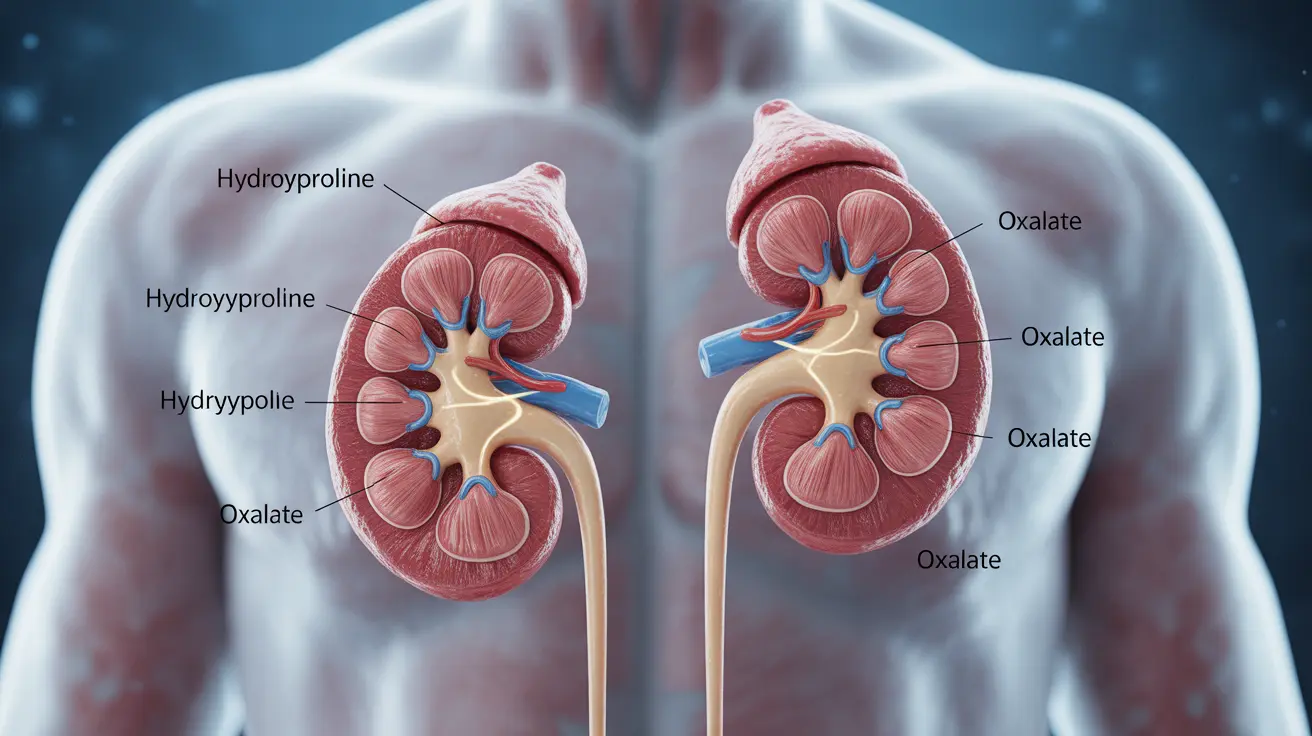As collagen supplements continue to gain popularity for their potential benefits to skin, joints, and overall health, it's crucial to understand their effects on kidney function. Whether you're considering starting collagen supplementation or already taking these supplements, knowing the potential impacts on your kidneys can help you make informed decisions about your health.
This comprehensive guide explores the relationship between collagen supplements and kidney health, including potential risks, safety considerations, and important precautions for different groups of people.
Understanding Collagen and Kidney Function
Collagen is the most abundant protein in the human body, playing a vital role in maintaining the structure of various tissues. When taken as a supplement, collagen is broken down into smaller peptides and amino acids, which are processed by the body, including the kidneys.
The kidneys play a crucial role in filtering waste products and maintaining proper protein balance in the body. Understanding how they interact with collagen supplements is essential for safe supplementation.
Collagen and Kidney Stone Risk
One of the primary concerns regarding collagen supplementation is its potential relationship with kidney stone formation. Collagen contains hydroxyproline, an amino acid that can be converted to oxalate in the body. Increased oxalate levels are associated with a higher risk of kidney stone formation in susceptible individuals.
The Hydroxyproline-Oxalate Connection
When the body processes hydroxyproline from collagen, it can lead to increased oxalate production. This process is particularly relevant for people who:
- Have a history of kidney stones
- Are prone to oxalate-based kidney stones
- Have genetic predispositions to high oxalate levels
- Have existing kidney conditions
Safety Considerations for Different Groups
Healthy Adults
For most healthy adults with normal kidney function, moderate collagen supplementation is generally considered safe. The body can typically process and eliminate the byproducts of collagen metabolism effectively through normal kidney function.
People with Kidney Disease
Individuals with existing kidney conditions should exercise particular caution with collagen supplements. Compromised kidney function may affect the body's ability to process and eliminate protein metabolites effectively, potentially leading to complications.
Preventive Measures and Recommendations
To safely incorporate collagen supplements while protecting kidney health, consider these important steps:
- Consult with a healthcare provider before starting supplementation
- Stay well-hydrated to support kidney function
- Monitor for any unusual symptoms
- Consider periodic kidney function testing if recommended by your healthcare provider
- Start with lower doses and gradually increase if tolerated
Frequently Asked Questions
Can taking collagen supplements increase the risk of kidney stones? Yes, collagen supplements can potentially increase kidney stone risk in susceptible individuals due to the conversion of hydroxyproline to oxalate. This risk is particularly relevant for people with a history of kidney stones or high oxalate levels.
What are the potential side effects of collagen on kidney health in people with kidney disease? People with kidney disease may experience complications from collagen supplementation due to reduced ability to process protein metabolites. Possible effects include increased waste product accumulation and potential strain on already compromised kidney function.
Is collagen safe for kidneys in healthy adults without pre-existing kidney problems? For healthy adults with normal kidney function, moderate collagen supplementation is generally considered safe when taken as directed. Regular kidney function and proper hydration help process collagen effectively.
How does hydroxyproline in collagen affect oxalate levels and kidney stone formation? Hydroxyproline from collagen can be converted to oxalate in the body. Higher oxalate levels may increase the risk of kidney stone formation, particularly in individuals predisposed to oxalate-based stones.
What precautions should people prone to kidney stones take when considering collagen supplements? People prone to kidney stones should consult their healthcare provider before starting collagen supplements, maintain adequate hydration, consider regular monitoring of kidney function, and potentially start with lower doses while monitoring for any adverse effects.




